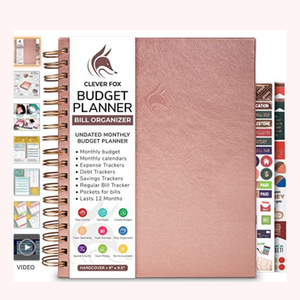10 Tips on How to Negotiate a Salary Raise
 How to Negotiate a Salary Raise starts with researching your market value, confidently presenting your achievements, and clearly articulating your worth to your employer.
How to Negotiate a Salary Raise starts with researching your market value, confidently presenting your achievements, and clearly articulating your worth to your employer.
Negotiation is a powerful skill that can dramatically impact your career, personal life, and financial future.
Yet, when it comes to negotiating, women often hold themselves back. Whether it’s asking for a raise, discussing salary with a potential employer, or negotiating a deal for your business, women are often conditioned to be more reserved or apologetic during negotiations.
But here’s the thing: Negotiation is not about being aggressive or confrontational—it’s about advocating for yourself, ensuring you’re compensated fairly, and recognizing your value.
You are worthy to be paid what the market is offering. Gone are the days of short changing yourself, limiting beliefs. The best course of action is to create a plan propel you for a successful negotiation.
Table of Contents
Money Freedom Tools
Below are some to the financial freedom tools that will help in developing your financial freedom either by properly creating a budget that works for your personal style. It also includes the different strategies that will ensure your retirements goals are achievable.
 Financial Budget Planner
Financial Budget Planner
It has many financial tips, trackers and and strategies to implement along the way.
- Home Finance and Bill Payment Organizer
- Budgeting Book with Income and Expense Tracker
- Daily, weekly, monthly and yearly budgets
- Has spacious pocket for all your bills, set annual financial goals, build a viable strategy,
.
 Budget Planner
Budget Planner
This is a comprehensive budget planner that is aimed in saving money and repaying debt fast
- Monthly bill organizer with pockets
- Expense tracker and finance journaling
- Financial calendar tracks money & savings,
- Debt tracking, Payment, Balances
- Bill tracking, and 2 pages for annual
.
 Personal Finance Book
Personal Finance Book
This book showcases how to completely transform your finances by showing step by step strategies
- Simplified beginners guide to eliminate financial stress
- Comes with digital simplified templates to use
- Saving strategies that can quickly save money
- Debt paying strategies that will erase debt faster
- Easy Strategies to implement and track your progress
.
 Payoff Debt Fast
Payoff Debt Fast
This book showcases the best way to quickly erase different types of debts.
- How to correctly payoff debt and correctly borrow money
- Includes how to manage different types of interest rates
- Credit Scores, Student Loans, Debt Payoff Strategies
- Cheaply manage debt, Essential Primer on Managing Debt
- Use credit wisely with this easy-to-understand, comprehensive guide
.
1. Know Your Worth and Do Your Research
The first step in successful negotiation is understanding your value. Whether you’re negotiating your salary, a freelance contract, or a business deal, knowing your worth is essential. When women don’t fully understand their value, they often settle for less than they deserve. This can be due to societal expectations or simply a lack of knowledge about the market.
Before entering any negotiation, take time to research industry standards, salary expectations, and the value of your skills. Websites like Glassdoor, Salary, and LinkedIn Salary Insights can help you gather data and benchmark what others in similar roles are earning. The more data you have, the more confident you’ll feel when discussing your worth.
Tip: Make a list of your achievements, skills, and contributions. This will serve as a powerful reminder of why you deserve the compensation or terms you’re asking for.
2. Be Clear About What You Want
Before you even enter a negotiation, you need to be clear about what you want. Do you want a salary increase? More vacation days? Flexible working hours? Or perhaps a new role within your company? The clearer you are about your goals, the easier it will be to make your case.
Ambiguity in negotiations can lead to confusion, missed opportunities, or less than favorable outcomes. Take time to outline exactly what you’re looking for, and be prepared to communicate your needs in a direct and confident manner.
Tip: Practice articulating your goals and desired outcomes, whether in front of a mirror, with a mentor, or with a trusted friend. The more you rehearse, the more comfortable you’ll feel in the actual negotiation.
3. Master the Art of Timing
Timing is everything in negotiation. The way you approach the conversation—when you bring it up, how you present your arguments—can significantly impact the outcome. One of the biggest mistakes women make is waiting too long to initiate a negotiation or bringing it up at the wrong time.
For instance, if you’re negotiating a salary increase, consider timing it after a successful project completion or a major contribution. If you’re negotiating with a potential client, wait until you have enough information about their needs and pain points to present a tailored solution.
Tip: Choose a moment when you have the upper hand—when you’ve proven your value or when it’s clear that the other party needs something from you.
4. Leverage Confidence, Not Aggression
Confidence is key when negotiating, but it’s important to recognize that there is a fine line between being confident and being perceived as aggressive. Women are often labeled negatively when they display assertiveness, but the truth is that confidence is a vital trait in any negotiation.
When you approach negotiations with poise and self-assuredness, you demonstrate that you believe in your worth. This doesn’t mean being rude or domineering but rather standing firm in your value and calmly articulating your case.
Tip: Maintain good posture, make eye contact, and speak with a clear and assertive tone. Practice speaking confidently so that you exude authority without being confrontational.
5. Practice Active Listening
Negotiation is a two-way conversation, and listening is just as important as speaking. When you listen actively, you show respect for the other party’s perspective, which can create a more collaborative and productive negotiation. It also allows you to gather valuable information that you can use to your advantage.
By listening carefully, you can uncover the other party’s needs and motivations, which allows you to tailor your argument in a way that appeals to their interests. This makes them more likely to agree to your terms.
Tip: Avoid interrupting or talking over the other party. Let them speak, ask follow-up questions, and listen for cues that can help you make your next move.
6. Be Prepared to Walk Away
One of the most powerful negotiation strategies is being willing to walk away if the terms don’t meet your needs. When you approach negotiations with the mindset that you have other options and aren’t desperate for this particular deal, you give yourself a stronger position.
Walking away doesn’t always mean you’ll end the conversation, but it shows that you value yourself and your needs enough not to settle for less. Being prepared to walk away lets the other party know that you won’t settle for anything less than what you deserve.
Tip: Always have a backup plan or alternative ready. If one deal doesn’t work out, have another opportunity in mind that you can pursue instead.
7. Practice the Power of Silence
Silence can be a powerful tool in negotiations. After making your case or asking for what you want, don’t rush to fill the silence with more words. Give the other party space to respond. Too often, women feel the need to explain or justify their request, but this can weaken your position.
Instead, after stating your terms or asking for a raise, let the silence sit. This can create a sense of urgency or pressure the other party into making a decision.
Tip: When you make a request, pause for a moment. Let the silence work in your favor. You’d be surprised how often the other party will break the silence and offer a better deal.
8. Focus on Mutual Benefits
Negotiation isn’t just about what you want—it’s about finding a solution that works for both parties. While it’s crucial to advocate for yourself, it’s also important to understand the other party’s needs and constraints. Focusing on mutual benefits can make you more persuasive and increase the likelihood of a successful negotiation.
For example, if you’re negotiating a business deal, think about how your offer can help the other party achieve their goals. By positioning your request as a win-win situation, you show that you’re not just focused on your own benefits but also on creating value for everyone involved.
Tip: Think about what the other party values and how your proposal can help them. When you create a win-win situation, negotiations become less adversarial and more collaborative.
9. Use Anchoring to Set the Stage
Anchoring is a psychological technique that can be incredibly effective in negotiations. It involves setting a reference point or “anchor” early in the conversation that serves as the starting point for discussion. This could be a specific number, an offer, or a request.
By setting the anchor high, you create a range in which the final agreement will likely fall. For instance, if you’re negotiating a salary, starting with a higher salary request gives you room to negotiate and still settle for an amount that’s higher than your initial expectation.
Tip: When making your first offer, be bold but realistic. Set the anchor high enough that it gives you room to negotiate down while still achieving your desired outcome.
10. Follow Up and Stay Persistent
Negotiation doesn’t always conclude in one conversation. Sometimes, the other party may need time to consider your proposal or may need to check with others. It’s important to follow up and stay persistent without being pushy.
By following up, you show that you’re serious about your position and that you’re committed to reaching a resolution. Staying persistent shows confidence and determination, signaling to the other party that you won’t simply give up on what you deserve.
Tip: After an initial discussion, send a thank-you email or message summarizing your points and requesting next steps. Stay courteous and professional throughout the process.
Conclusion
Negotiating like a pro isn’t about being cutthroat or manipulative; it’s about knowing your value, advocating for yourself, and finding solutions that work for both parties. By utilizing these strategies, you’ll be equipped to negotiate with confidence, whether you’re asking for a raise, closing a deal, or navigating a business transaction.
When women negotiate with confidence and clarity, they don’t just earn what they deserve—they set the stage for future success and empowerment. So, the next time you step into a negotiation, take a deep breath, trust in your worth, and remember that you have the skills to secure the deal of your dreams.
- 100 Valentine Lovers Questions - February 24, 2025
- 2025 New Year Growth Quotes - February 24, 2025
- 2025 Inspiring Self Love Quotes - February 24, 2025







